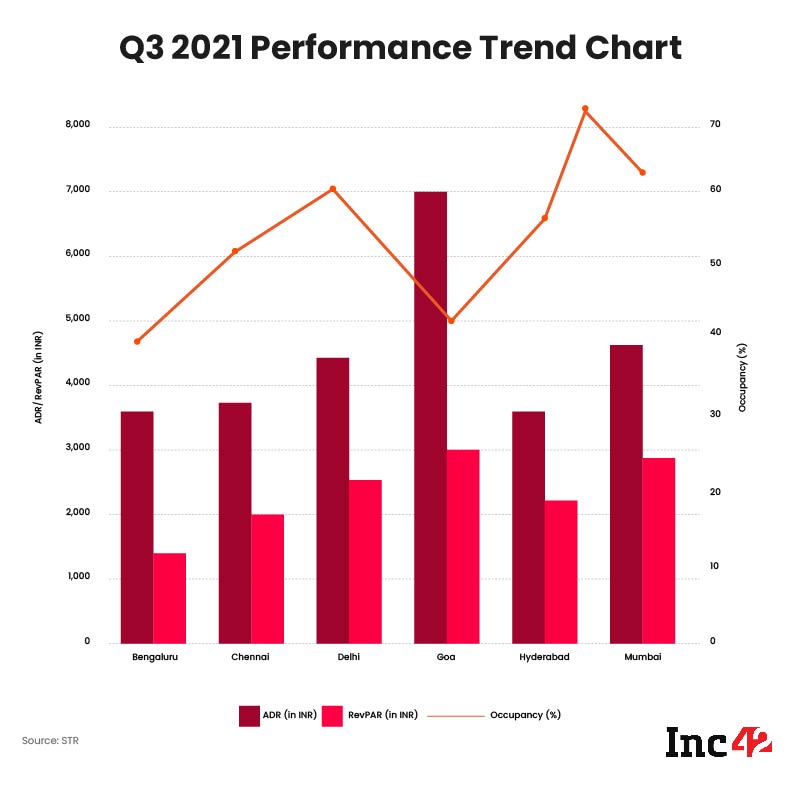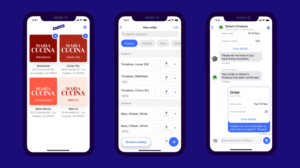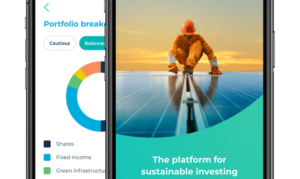“From smart room keys to mobile apps, the Indian hospitality sector is slowly approaching tech-driven guest experiences, chatbot services, and an automated ecosystem, but we still have a long way to go. Covid-19 raised new challenges which have ultimately forced the hospitality industry to adapt, evolve, and respond to consumer needs,” – Chetan Borkar, country manager for India and Sri Lanka at CM.com.
Since the global onset of the Covid-19 pandemic in early 2020, the travel and hospitality sector has been in flux. After a total lockdown for months, limited occupancies regulated by stringent pandemic protocols and social distancing norms turned out to be the new normal as the world opened slowly. But uncertainty looms large once again as the world struggles to cope with Omicron, the next super strain. India, too, is on high alert as the ‘super infectious’ variant is already here, and the number of Covid cases is rising.
India was about to resume all international commercial flights from December 15. But the government put its plans on hold due to an impending Omicron wave. This has definitely hit the industry, all set to return to normalcy after a hiatus of 20 months or so, but the sector is optimistic about the journey ahead.
A look at India’s travel and hospitality space over the past year also confirms that all was not doom and gloom despite the initial setback. Travel and tourism started gaining momentum after the second wave subsided, and many a time, the demand went back to pre-Covid levels. JLL’s quarterly hospitality sector monitor revealed that compared to Q3 2020 (July-September), India’s hospitality industry saw 169.4% growth in RevPAR (revenue per available room) in Q3 2021.

In an earlier conversation with Inc42, Srinath Shankar, cofounder of Chennai-based D-I-Y (do it yourself) travel booking platform Pickyourtrail, had said, “Calling this environment harsh is a kind word! This has meant a death sentence for many of the big brands built over the past few decades.”
Cut to the present, and one sees how the players are proactively tapping into the opportunities that arose with the sector opening and the peak travel season being here. In fact, domestic tourists have returned with a vengeance after the second wave, and staycations and workations (the latter benefits remote workers stuck at home for months and keen to work from someplace else) across hotels, resorts, homestays and B&B units have turned out to be a popular tourism trend.
Commenting on the same, Rikant Pittie, cofounder of New Delhi based OTA EaseMyTrip, said, “After sitting at home for more than a year, people realise the need for a travel break. So, we are planning to focus heavily on the hotel and holiday segments. And we are working proactively to cater to the increased demand that we foresee.”
Given this scenario, Covid-appropriate protocols, adequate discounts and services and proper communication/engagement with customers have emerged as key growth drivers.
“We have partnered with many airlines and hotels to ensure safety and hygiene, which will be a huge deciding factor for customers. We also ensure personalised experiences based on their preferences and offer hassle-free travel solutions for comfortable and safe journeys,” added Pittie.
Industry Banks On Communication Strategies
“As a hospitality brand, if you are not personalising marketing and communication to your full potential, you are not going to make it, given the fierce competition. Plus, the hospitality industry is a high-touch segment. As customers have grown comfortable with technology, they generally have multiple touchpoints to communicate with a business before they make the final decision and buy the services,” said CM.com’s Borkar.
He elaborated it by citing how a customer would want to book hotel accommodation. Typically, the journey starts with browsing several online travel agencies to find the best deals, followed by visiting certain hotel websites that meet their requirements. If they want more information, they may get into a live chat with customer assistance, not only on the hotel’s website but any other channel of their preference.
“I mean, not all customers are going to visit the website, right? Some may find a hotel’s Facebook page more convenient to do their research, while others may prefer WhatsApp. A hospitality brand should be omnipresent and available 24×7 to cater effortlessly to a customer’s needs on the person’s preferred channel/s,” added Borkar.
Interestingly, many players are now ready to fulfil these criteria with ease. As business operations and revenues came to a standstill last year, their focus shifted to enhancing internal processes, improving customer service (through technology use) and optimum management of other critical areas.
Sunil Suresh, chief marketing officer at the Goibibo group, earlier said, “Even during the pandemic, we focussed on three areas. First, we determined what we needed to do to take care of our customers’ concerns. Then we looked at the health of our business and focussed on optimising costs. And finally, we focussed on finding opportunities amid the adversities.”
Be it a tour customisation firm like Pickyourtrail or a budget hotel chain like Treebo, most companies focussed on a few key areas such as customer engagement, goodwill retention and educating people on Covid-19 guidelines, the do’s and don’ts and how hotels and carriers ensured their safety.
Detailing the brand’s current marketing efforts, Hardik Goyal, VP (Growth and B2C) at Treebo Hotels, said, “We rely heavily on email marketing as we have a large user base now. We are also growing our social media channels because most travellers are active on social media. So, it becomes a relevant channel for us to engage with them, roll out our campaigns and convert them to loyal customers.”
How CM.com Is Enabling Customer Engagement And Retention
Staying in touch with customers and retaining them for the long term are crucial for business growth, but these come with their own set of challenges. And they become even more complicated in the absence of traditional business activities.
“Since the pandemic, we have stayed in touch with our customers and regularly updated them regarding travel restrictions and relaxations. We have engaged with them and provided information on vaccination and Covid protocols and how to stick to those during the peak of the pandemic,” said Pittie of EaseMyTrip.
While brands took to educating customers about hygiene and safety measures, the destinations they could visit when the crisis was over and more, it was also essential not to bombard people with news and updates. The success lay in low-key, unobtrusive but impactful and information-rich communication that would continue to make its mark.
Another major challenge during the period was round-the-clock grievance redressal. “With the uncertainty over flights, a lot of people were trying to get in touch to postpone or cancel their tickets,” added Pittie.
This is where companies like CM.com have made an impact. Headquartered in Breda, Netherlands, the company launched its India operations in January 2021 to provide businesses with AI-powered chatbots, multichannel messaging APIs and automation software, ensuring customer communication with minimal manual efforts.
“Our conversational AI cloud helps organisations develop enterprise-grade chatbots with ease as no coding is required in these cases. By offering a comprehensive, integrated cloud solution with communication channels and SaaS functionality for brands, it enables them to improve marketing and customer service,” explained Borkar of CM.com.
The company’s cloud-based conversational AI also equips global enterprises with a unified view of the customer’s journey and customer data that delivers actionable insights. “When you know who your customers are, you can proactively start a conversation and learn more about their preferences and intentions to improve your business model,” he added.
Talking about the firm’s offerings, Borkar said, “CM.com has a robust set of services for the hospitality sector, especially for the Indian market. Our specialists have simplified local challenges with our powerful suite of conversational commerce solutions, helping brands meet consumer demands.”
The Dutch firm provides a plethora of services, including mobile marketing cloud, customer data platform and business messaging API that covers channels like SMS, WhatsApp Business, Facebook Messenger, Instagram, Twitter and more. Additionally, it offers a dedicated payment solution, enabling brands to receive payments from a customer’s preferred channel (messaging channels, email, QR codes and so on) by simply generating a link.
As Indian enterprises are often reluctant to use automated solutions due to operational challenges requiring specialised teams or processes, CM.com has introduced an ecosystem of customer success teams and onboarding managers. These teams are responsible for analysing the problems faced by local businesses and providing tailored solutions.
The Road Ahead
How relevant are the likes of CM.com and their AI-powered solutions when it comes to customer engagement? Experts believe it can be the next big thing for the hospitality, travel and tourism sectors, given India’s burgeoning markets. An IBEF analysis revealed that FY27, India travel market is projected to reach $125 Bn while the hotel market will cross $52 Bn.
Apart from the sheer volume, the nature of communication and engagement is also evolving, calling for more granular and micro-level solutions instead of generic campaigns. It is now imperative for hospitality brands to build a strong network across all communication channels. Such overarching initiatives driven by cutting-edge technology will help their customers book and plan their stay on the channel of their choice and enable brands to send real-time updates regarding accommodations, dinner reservations, personalised offers, feedback, surveys and more.
“We want our customer base to stay engaged and up-to-date about what we are doing as a brand. This will keep us relevant in the customer’s mind regarding new offerings and product launches. It will help them choose Treebo when they plan their next trips, and they can directly book from our platform,” said Goyal.
“Seeing the recovery of the industry this year, we have used big-ticket events such as the IPL and full-page ads in national newspapers,” said Pittie of EaseMyTrip. “We will continue to explore these initiatives in the coming year as we truly believe in the balanced mix of both digital and offline.”
With the focus on high ROI, brands are trying to leverage relevant platforms that can gain maximum interest from their customers. This includes building honest engagement initiatives rather than extravagant marketing.
For EaseMyTrip, this means utilising multiple traditional and online mediums to highlight the brand story — “a 100% Indian company that is 100% bootstrapped and profitable since inception,” added Pittie. The goal behind the move was to keep it simple and honest.
During a conversation Borkar told Inc42 success in the travel and hospitality industry can only be achieved by delivering a personalised, relevant, and seamless customer experience. This is where conversational commerce becomes important, offering an opportunity for brands to elevate their service by increasing impact and effectiveness, and enable them to provide more timely and dedicated support for complex customer issues
“To scale in a resilient industry like hospitality, brands must digitalise and automate their operations and streamline each digital touchpoint to make the user journey as simple as possible. Next, all health and wellness practices will be directly proportional to the tech-driven guest experiences they deliver by cutting off human interactions and promoting digital self-service via conversational and mobile-first technologies and AI chatbots. Brands that are already in transition are going to own the guest experience,” he added.










